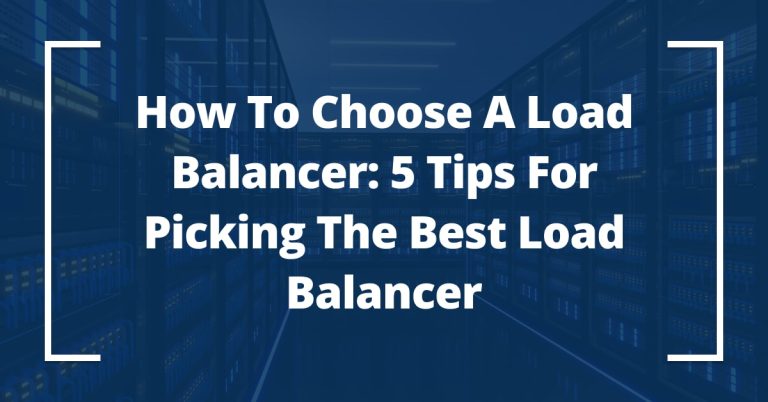As a Liquid Web customer, you know as well as anyone that as your website grows, so does your need for more resources. To accommodate increased traffic and ensure optimal response time, you may need to consider moving from your virtual private server (VPS) to the full power of a traditional dedicated server — something we can help with here at Liquid Web.
But how do you know when it’s time to make the switch? Let’s explore some of the key differences between Liquid Web’s VPS and dedicated server solutions.
In this article, we will cover their benefits and drawbacks, which should help you decide if it is the right time for you to move from your VPS to a traditional dedicated server.
Understanding Liquid Web’s VPS Solutions vs Dedicated Servers
As you know, Liquid Web’s VPS hosting gives you a virtual machine on a physical server. Your website is hosted in an isolated environment, but you share hardware resources with other tenants running off their own VPS on the same underlying server cluster.
Liquid Web’s Dedicated Servers, by contrast, give you the entire server and all of its included resources for your private use. This means you don’t have to share any hardware resources with websites running on other instances. You have complete control over how those resources are used.
A key difference between Liquid Web’s VPS and dedicated hosting is theoretical performance. VPS hosting can be slower than dedicated hosting, as you are sharing resources with other parties. However, VPS hosting is typically more affordable than dedicated hosting.
Another key difference is scalability. VPS hosting can be more flexible than dedicated servers. As your website grows, you can add more resources to your VPS via a resize event. However, dedicated servers can be more reliable than emulated VPS hosting, as you are not splitting up resources among multiple users.
If you need a high-performance, reliable hosting solution, then Liquid Web’s dedicated servers are the better option.
Benefits and Limitations of VPS Hosting
VPS hosting can be a good option for organizations that have infrequent traffic spikes. From small businesses to mid-sized organizations with predictable traffic patterns and storage needs, a VPS is usually the better choice. VPS hosting is also relatively affordable, a significant advantage for small businesses working with tight budget constraints.
However, as with all things, VPS hosting has its drawbacks. Sharing underlying hardware resources with other unrelated users limits your allocated resources. For example, suppose a VPS is configured for 4GB of system memory. In that case, you will be limited to only 4GB of memory, even if the server upon which your VPS resides has more than 4GB of memory available.
Slowed Page Load Times
A potential limitation of VPS hosting is slow page load time due to shared resources. As you know, slow-loading websites can impact a number of things — including sales.
According to a Think With Google study, a one-second delay in page load time can lead to a 7% decrease in conversions on mobile devices. This means that if you have a website that converts 10% of visitors into customers, a one-second delay could cost you 0.7% of your potential customers.
The study also found that the impact of page load time on conversions is even greater for high-intent visitors, such as those who are looking to make a purchase. For these visitors, a one-second delay can lead to a 10% decrease in conversions.
This study highlights the importance of having a fast-loading website, especially for mobile devices. If you want to improve your website’s conversion rate, you should ensure that it loads quickly.
The unfortunate reality of this study highlights that this kind of negative impact will likely lead to a loss of revenue if not addressed swiftly.
Other drawbacks of VPS hosting include the following:
- Control — You do not have total control over the server as you do with dedicated hosting.
- Security — You share the server with other parties, which could increase your security risk.
- Scalability — It can be difficult to scale your VPS as your website grows.
Benefits and Limitations of Dedicated Servers
Liquid Web dedicated servers provide several advantages over their VPS counterparts, including better performance and security. This is because you have total control over resource allocation and the overall configuration of the server. However, dedicated hosting can cost more than a VPS since you are not sharing resources with other tenants. Nevertheless, there are a number of advantages to Liquid Web dedicated servers.
Key Benefits of Dedicated Servers
Better Performance
Liquid Web dedicated servers have dedicated resources that are not shared with other users. This means that your website will have more CPU, memory, and storage resources to work with, which can lead to improved performance. For example, if you have a high-traffic website, our Liquid Web dedicated servers can help to ensure that your website loads quickly and reliably.
Deeper Security
Liquid Web dedicated servers give you more control over the server’s configuration, which can help to protect your website from attacks and data breaches. For example, you can install your own security software and configure your server settings to your specific needs.
Other Considerations for Dedicated Servers
While the benefits of dedicated servers are clear, there are a few things to consider before making the switch.
Higher Cost
Dedicated servers typically cost more than VPS servers. This is because you are renting the entire server, not just a portion of it.
Increased Complexity
Dedicated servers can be more complex to manage than VPS servers. This is because you have more control over the server’s configuration.

When To Move From Liquid Web VPS To Dedicated
There is no definitive formula for when the time is right to migrate to a dedicated server solution here at Liquid Web. However, we have outlined some of the most common scenarios where the move makes sense for customers like you.
Increased Traffic
As your business grows, you may see an increase in traffic to your website. If your VPS is suddenly unable to handle increased traffic on a regular basis, it may be time to consider the move more seriously. Since the alternative is website performance degradation or, worse, downtime, it’s important to swiftly identify these scenarios so they can be remedied. A dedicated server will give you more resources to handle the increased traffic so you can avoid these problems.
Additional Resources
Traffic demand aside, sometimes code or application changes create increased demand for server resources. If you need more server resources, such as CPU power or memory, a dedicated server may be the best option for you.
Future-Proofing
If you think your website will continue to grow in the future, you may want to consider moving to a Liquid Web dedicated server now. This way, you can avoid the painful website struggles associated with limited resources in a VPS setup. Moving to dedicated servers now will help you avoid having to switch or migrate later when it may be more difficult and expensive.
Security and Compliance
Security compliance is a concern for all businesses. However, if you need to maintain more rigid security practices, then a dedicated server would be a better option than a VPS. This is because you will have more granular control over the security of your server in totality, and you won’t be penalized for poor security practices of a neighboring server on your same VPS infrastructure.
Data Privacy
If your data privacy needs have changed, you may want to consider moving to a dedicated server from a VPS solution. Similarly, this is because sharing a server with other independent users may compromise your ability to comply with any of the more stringent data security policies.
Making the Business Case for Moving From VPS To Dedicated Hosting
Dedicated hosting can improve the success of your business in several ways. Here are three key benefits of dedicated hosting and how they can improve the success of your business:
Improved Performance
One of the biggest benefits of dedicated hosting is improved performance. When you use a shared hosting plan, your website shares resources with other websites on the same server. This can lead to slower loading times and decreased uptime. With dedicated hosting, you have the entire server to yourself, so you won’t have to worry about performance issues.
A dedicated hosting server gives you all the resources you need, so your website will load faster and be more reliable. This can lead to increased sales, improved customer satisfaction, and a better overall user experience.
Hardened Security
Another benefit of dedicated hosting is hardened security. When you use a shared hosting plan, your website shares an IP address with other websites on the same server. This makes it more difficult to track down malicious activity and makes your site more vulnerable to attack. With dedicated hosting, you have your own IP address, making it easier to secure your site and keep it safe from harm. You also have more control over the security of your server, so you can install updates and patches as soon as they’re available. This can help to protect your website from malware, DDoS attacks, and other security threats.
More Control
Finally, dedicated hosting offers more control than shared hosting. With shared hosting, you’re at the mercy of the hosting provider regarding things like updates and security patches. Dedicated hosting allows you to manage your own server, which means you can install updates and patches as soon as they’re available. This gives you the peace of mind that comes with knowing your site is always up to date and secure.
With dedicated hosting, you have more control over your website’s environment. You can choose the operating system, software, and hardware that you want to use. This gives you the flexibility to customize your website to meet your specific needs.
In addition to these benefits, dedicated hosting can also help to improve your company’s reputation. When your website is fast, reliable, and secure, it sends a message to potential customers that you’re a professional and trustworthy company. This can lead to increased sales and a better bottom line.
Transitioning From Liquid Web VPS To Dedicated
When you have made the final decision to move from an existing VPS solution onto a dedicated server plan, here are the steps you need to take:
- Set up your server — Before making any migration plans, it’s important to have your replacement server completely set up (i.e., operating system, applications, and other software).
- Migrate your website — Transfer your website files and database to your new server. Test the websites on the new server before signing off on any final migration steps and DNS changes.
Liquid Web offers best-in-class support for dedicated server hosting. With Linux or Windows operating systems, the dedicated servers come with Proactive Sonar Monitoring™ and ServerSecure hardening.





